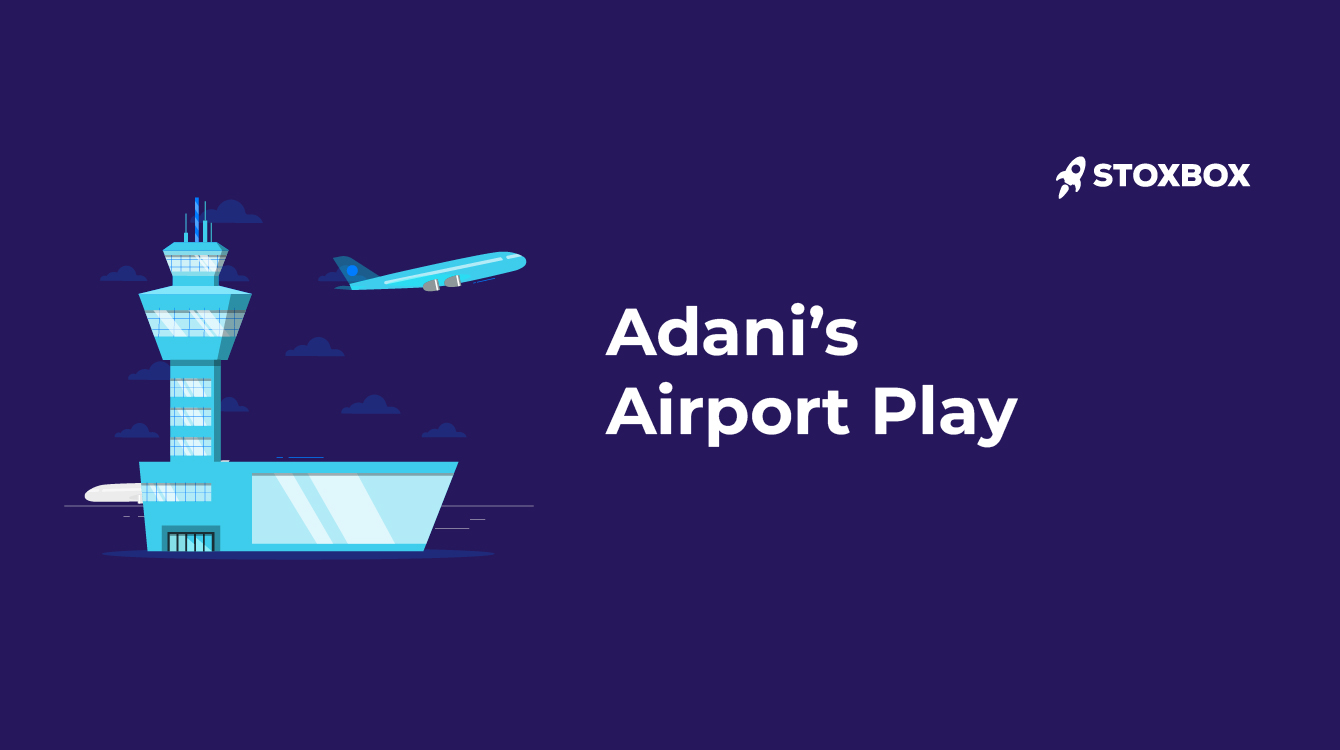he government of India’s plan to move forward with privatization paved the way for the Adani’s to not only conquer ports but also airports. The disinvestment in the airline sector by the government was carried out with the purpose of privatization where the majority of command would be under the private sectors which will not only soothe the functioning of the airline sector but also contribute towards the government revenue through per person fee, lease charge and so on. However, private investments in the country’s leading infrastructure don’t take place with the quick allotment on a first come first serve basis or by any other means except bidding that involves technical as well as financial bidding.
The bidding wars.
As soon as the news broke out major competition rose not only within the boundary but throughout the globe. The government of India decided for public-private partnership in six of the major airports within six major cities that are Lucknow, Guwahati, Ahmedabad, Mangalore, Jaipur, and Thiruvananthapuram. The love for port and its interest in the airline industry facilitated Adani to participate in the bids for the six airports put forward by the government of India with the purpose of Privatisation. Besides Adani, GMR and The Cochin international airport PVT LTD were also the ones that participated in the bid along with others. The opening of technical bids conveyed GMR which runs Delhi and Hyderabad airport with Adani group had submitted the bid for all the six airports. Adani topped off the list by winning the bids for all the six airports at the end by being the highest bidder by per passenger fee. Adani won all the bids
by quoting the highest per passenger fee for not one but all six airports which showcased its high interest and intentions to win the airports.
Adani Airport Play
Disapproval of the state government of Kerala.
Adani did successfully win the bid but a clear path for a while indicates troubles shortly. The acquisition of Thiruvananthapuram airport was disliked by the state government of Kerala. The government of Kerala wasn’t happy with Adani’s acquisition although it participated in the bid for the Thiruvananthapuram airport which proved to be a problem for the Adani group. Before the bid for Thiruvananthapuram airport, the central government and the Kerala government agreed that if the bid from KSIDC (Kerala state industrial development corporation) comes within the 10 percent range the airport will be handed over to the KSIDC but the percent range went up to 19.64 which made Adani win it. The Government of Kerala had disapproval of handing over the airport to Adani. This went on for a while but the ball ended in Adani’s court as they were declared the winner for all the six ports.
Not six but eight airports.
Adani not only owns the operation of the six airports by being the highest bidder but also bought 74% of the stake in the Mumbai airport which will not only grant them the control of Mumbai airport but also of the upcoming Navi Mumbai project. Adani bought the stakes from GVK as it was struggling and the airline industries faced financial problems during the Covid19 pandemic which led GVK to default salaries since July. The Adani group not only took over the loans of GVK but also took over the MIAL (Mumbai international airports ltd) debt and also invested funds in the upcoming Navi Mumbai project to speed up the process. The impact of the Covid19 pandemic sped up the process of privatization which played in the favor of the Adani group. By being the highest bidder in the room to taking advantage of the opportunity by taking over Mumbai airport clearly states that Adani not only wants to settle with ports but also with airports.
Per passenger fee agreed on.
The control over the airports to Adani group has been lent for 50 years where the per passenger fee has been agreed with which will be needed to be paid to The Airport Authority of India.
- ₹168 is the per passenger fee to AAI for Thiruvananthapuram airport,
- ₹115 per passenger fee for Mangalore airport,
- ₹171 per passenger fee for Lucknow airport,
- ₹ 177 per passenger fee for Ahmedabad airport,
- ₹160 per passenger fee for Guwahati airport,
- and ₹174 per passenger fee for Jaipur airport. The per passenger fee mentioned is domestic fees and the international per passenger fee will be slightly higher. The per passenger fee will be paid to The Airport Authority of India with a new criterion established where the fee will be paid every month.
Adani Airport Play
Conclusion
The acquisition of control over seven airports where one is a work in progress has enabled Adani to be the biggest private airport operator in India. The acquisition of these airports was never effortless. Adani group took advantage of the opportunity over the Mumbai airport where it faced several complications with other competitors involved and, in the end, paved its way to the top acquiring not only the Mumbai airport but also the upcoming Navi Mumbai project. Adani made its way to the top even though with no prior experience in the airline industry but its consistency to grow and already being known as a massive giant among the ports might have led to its big win.
Frequently Asked Questions
1. What role do airports play in the broader Adani Group’s infrastructure strategy?
Airports serve as a critical component of Adani Group’s infrastructure portfolio, aligning with their vision of creating integrated transport and logistics hubs across India.
2. How has the privatization of airports in India influenced Adani’s airport operations?
Privatization has opened opportunities for private players like Adani to modernize and expand airport infrastructure, enhancing connectivity and passenger experiences.
3. What growth potential exists for Adani in the aviation sector?
With increasing air travel demand, Adani aims to capitalize on passenger traffic growth and infrastructure development to generate long-term revenue.
4. How does Adani plan to diversify revenue streams within its airport business?
Adani focuses on both aeronautical (flight operations) and non-aeronautical (retail, hospitality, and advertising) revenues to maximize profitability.
5. What is the significance of Adani’s investment in smaller regional airports?
Investing in regional airports helps Adani tap into underserved markets, supporting the government’s UDAN scheme and promoting regional connectivity.
6. How does technology integration benefit Adani’s airport operations?
Advanced technologies like automated systems and digital platforms streamline operations, enhance security, and improve passenger satisfaction.
7. What challenges does Adani face in the airport sector?
Adani must navigate regulatory hurdles, competition from global airport operators, and high capital expenditure requirements to achieve sustainable growth.
You might also Like.
Double Top Pattern: The Ultimate Trading Guide
Have you ever witnessed a promising uptrend reverse on you...



